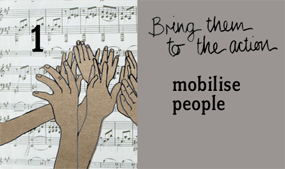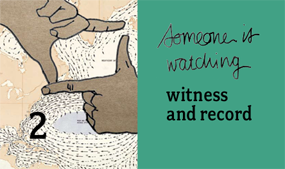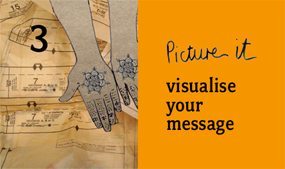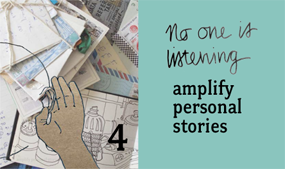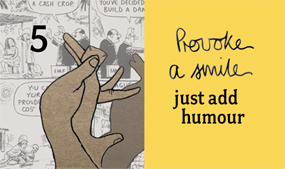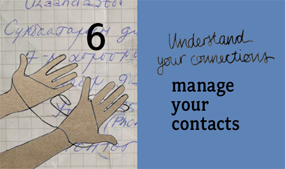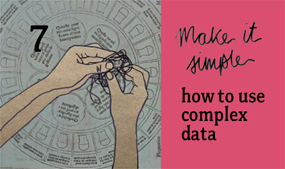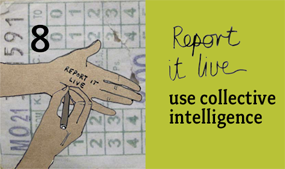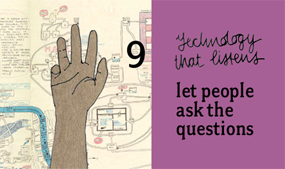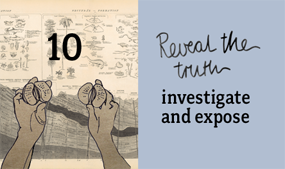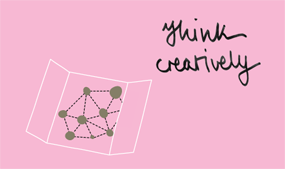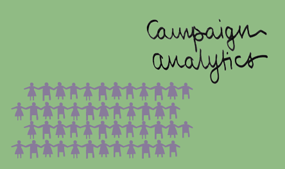The Open Society Institute organised a screening of 10 Tactics in New York City on Monday 1 March. This event also featured a panel event featuring some of the contributors to the documentary. Priscila Néri, who attended the screening, writes of her experience:
Say you suspect the president of your country is using the Presidential airplane to go shopping and sightseeing in Paris instead of for official state purposes. Or say your government has blocked YouTube because too many videos showing police brutality have been uploaded there. Or suppose you spent years using Freedom of Information laws to request access to government data and now you have thousands of pages of a complex budget in front of you. What can you do with this information? How can you turn information into action?
Here's a good place to start: 10 tactics for turning information to action - a 50-minute film by the Tactical Technology Collective that showcases some of the most successful tactics and strategies for using information to create change. The video highlights the experiences of activists from around the world that are using video, photos, SMS text-messaging, blogging and campaigning on platforms like Google Maps, Google Earth, Facebook, Twitter, YouTube, Flickr, and blip.

Last night my colleague Sam Gregory (who is featured in the film and also serves on Tactical Tech's board) and I attended a screening of 10 tactics organized by the Open Society Institute in New York City. After the screening, a panel led by Sam and two inspiring contributors to the film - Melissa Gira Grant and Tessa Lewin - gave way to an interesting discussion with questions about measuring success in info-activism and addressing the ethics of online media.
For me, it's always inspiring to see how far a bit of creativity goes: the Tunisian activists who tracked images of the Presidential plane at different international airports to prove it was being used for personal travel (see tactic 3); the feminist activists from the Women and Memory Forum in Egypt who are rewriting traditional Arabic fairytales and folklore to challenge prevalent representations of women in popular culture (see tactic 1); the Slovakian activists from the Fair Play Alliance that created an online database to track how the government spends its money and find conflicts of interests between officials and the contracts awarded (see tactic 3).

Story by Priscilla Neri, first published on The Hub blog.
Images from WITNESS flickr stream. Top: '10 tactics' screening at Open Society Institute, NYC. Bottom: panelists at the screening.




